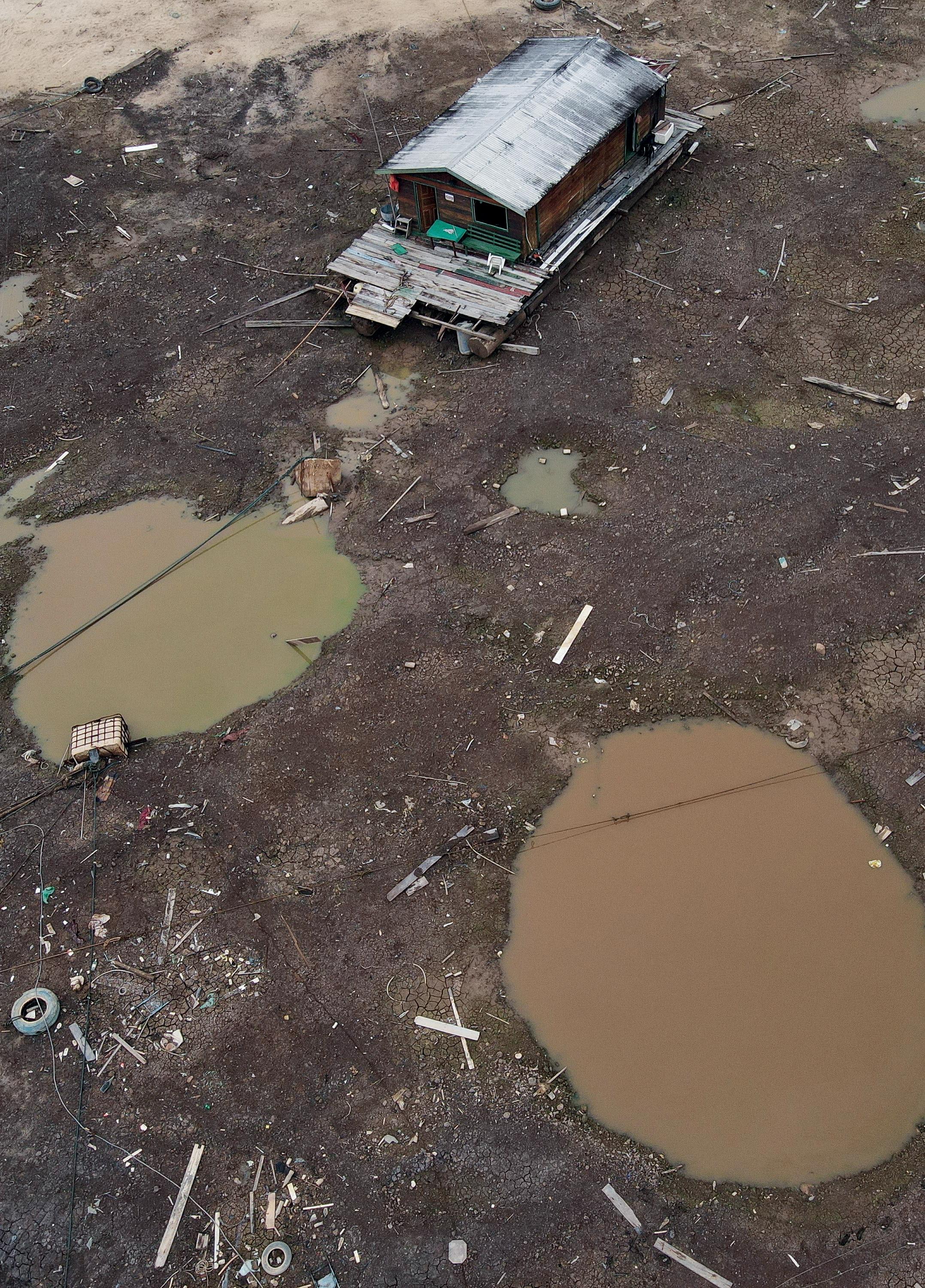Essayer OR - Gratuit
A SINK BECOMES SOURCE
Down To Earth
|November 16, 2023
Droughts kill billions of trees in the Amazon like no other extreme event
-

FROM JUNE, meteorological signs foretold that a drought would hit the Amazon region. Droughts in the rainforest are typically fuelled by high sea surface temperatures in the North Atlantic Ocean on the northeast and in tropical Pacific Ocean on the northwest.
Scientists particularly watch out for high sea surface temperature in the tropical Pacific, as it marks the onset of El Niño, the warm phase of a recurring climate pattern El Niño-Southern Oscillation. Many drought episodes in the Amazon have occurred during intense El Niño conditions such as those recorded in 1926, 1983, 19971998, and 2010. These conditions weaken the "Walker Circulation"-an atmospheric circulation in the Pacific Ocean over the tropics. Walker Circulation resembles a loop consisting of rising air in the west and sinking air in the east. During an El Niño, the rising moist air, which is meant to bring rainfall, does not reach the continent of South America. Instead, there is more sinking and dry air moving towards the land, setting the stage for a drought.
This year, the World Meteorological Organization declared the onset of El Niño in the tropical Pacific on July 4, but said that the conditions were moderate. Then what caused such a severe drought in the Amazon?
JOCHEN SCHÖNGART
Amazon has seen more droughts, floods in the past 15 years than in a century
The Amazon basin is in transition to an anthropogenic disturbance-dominated regime
Cette histoire est tirée de l'édition November 16, 2023 de Down To Earth.
Abonnez-vous à Magzter GOLD pour accéder à des milliers d'histoires premium sélectionnées et à plus de 9 000 magazines et journaux.
Déjà abonné ? Se connecter
PLUS D'HISTOIRES DE Down To Earth

Down To Earth
THINK TWICE BEFORE FELLING SAL TREES
Many trees considered to be affected by sal borer in the 1990s are still alive today
1 mins
February 16, 2026

Down To Earth
EDGE OF SURVIVAL
Caste divides deny marginalised communities land, resources and essential aid, leaving them more vulnerable to climate disasters
6 mins
February 16, 2026

Down To Earth
A WISH LIST?
Union Budget for 2026-27 conveys the impression of a roll-call of intentions and ambitious proposals, with little detail on their formulation
6 mins
February 16, 2026
Down To Earth
Break down the gender wall
THE RULING National Democratic Alliance (NDA) government has been heavily invested in the goal to make India a developed economy by 2047.
2 mins
February 16, 2026

Down To Earth
MENSTRUAL HEALTH, NOW A FUNDAMENTAL RIGHT
In a landmark judgement, the Supreme Court has recognised menstrual health and hygiene as a fundamental right under Article 21 of the Constitution of India, which guarantees the right to life and dignity.
8 mins
February 16, 2026

Down To Earth
Of devolution and new disasters
The 16th Finance Commission pushes for changes in view of new fiscal and climatic conditions
11 mins
February 16, 2026
Down To Earth
Rising risks of plastics
NEGATIVE IMPACTS on human health due to emissions linked to the plastic lifecycle could double by 2040, according to a study published in The Lancet Planetary Health in January.
1 min
February 16, 2026

Down To Earth
GAP BETWEEN EPIDEMICS NARROWING
A watershed-based and landscape-level approach is needed to address forest degradation
2 mins
February 16, 2026

Down To Earth
WAITING TO STRIKE
Sal heartwood borer is considered the biggest threat to forestry in India, especially to the sal tree, where it lives and breeds.
11 mins
February 16, 2026

Down To Earth
A SPRING DELIGHT
Mustard flowers are not meant only for the eyes. Invite them to your plate once in a while
3 mins
February 16, 2026
Translate
Change font size
